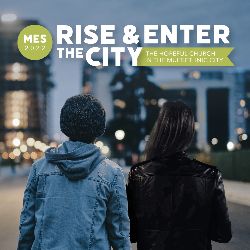Loading...
Start Date
3-5-2022 9:45 AM
End Date
3-5-2022 10:50 AM
Description
Casual observers traversing the American metropolis can often be lulled into thinking that the visible disparities built into the landscape are somehow natural and inevitable, the result of immutable social processes rather than human choices or agency. However, understanding the divergent fates of individual neighborhoods with vastly different access to resources requires us to take seriously an array of forces — from policy decisions to forms of cultural representation — that operated at the metropolitan scale across numerous decades. In short, urban history matters if we’re to make sense of the city in the present day.
In this presentation, Dr. Benjamin Looker proposes several frameworks for fruitfully bringing such historical thinking to bear when interpreting and engaging with neighborhood spaces of the present. Along the way, he explores why numerous generations of American social thinkers, artists and activists have persistently attributed an immense power and significance to the neighborhood as a social form and arena for human interaction. And, highlighting the conference location, he illustrates these themes with examples of several St. Louis neighborhoods whose evolution has been especially consequential to the metropolis as a whole.
Submission Type
Bible Study; Lecture; Sermon Prep
Submission Topics
World Mission
Submission Audience
Laity; Ministers; Scholars
Submission Cost
Free
Plenary Presentation: The Past and Possible City: Reckoning with America's Metropolitan History to Interpret Neighborhood Landscapes of Today
Casual observers traversing the American metropolis can often be lulled into thinking that the visible disparities built into the landscape are somehow natural and inevitable, the result of immutable social processes rather than human choices or agency. However, understanding the divergent fates of individual neighborhoods with vastly different access to resources requires us to take seriously an array of forces — from policy decisions to forms of cultural representation — that operated at the metropolitan scale across numerous decades. In short, urban history matters if we’re to make sense of the city in the present day.
In this presentation, Dr. Benjamin Looker proposes several frameworks for fruitfully bringing such historical thinking to bear when interpreting and engaging with neighborhood spaces of the present. Along the way, he explores why numerous generations of American social thinkers, artists and activists have persistently attributed an immense power and significance to the neighborhood as a social form and arena for human interaction. And, highlighting the conference location, he illustrates these themes with examples of several St. Louis neighborhoods whose evolution has been especially consequential to the metropolis as a whole.


